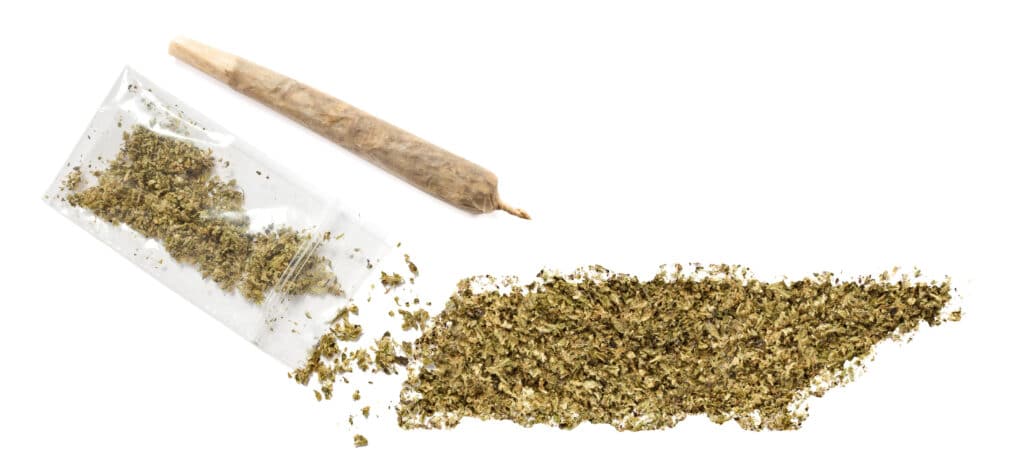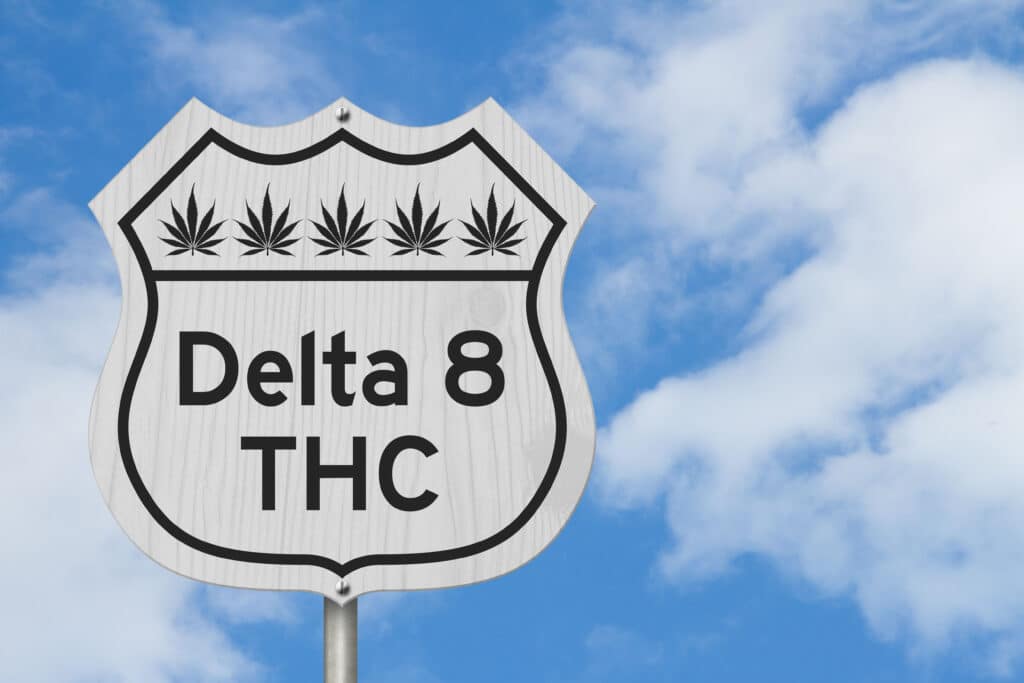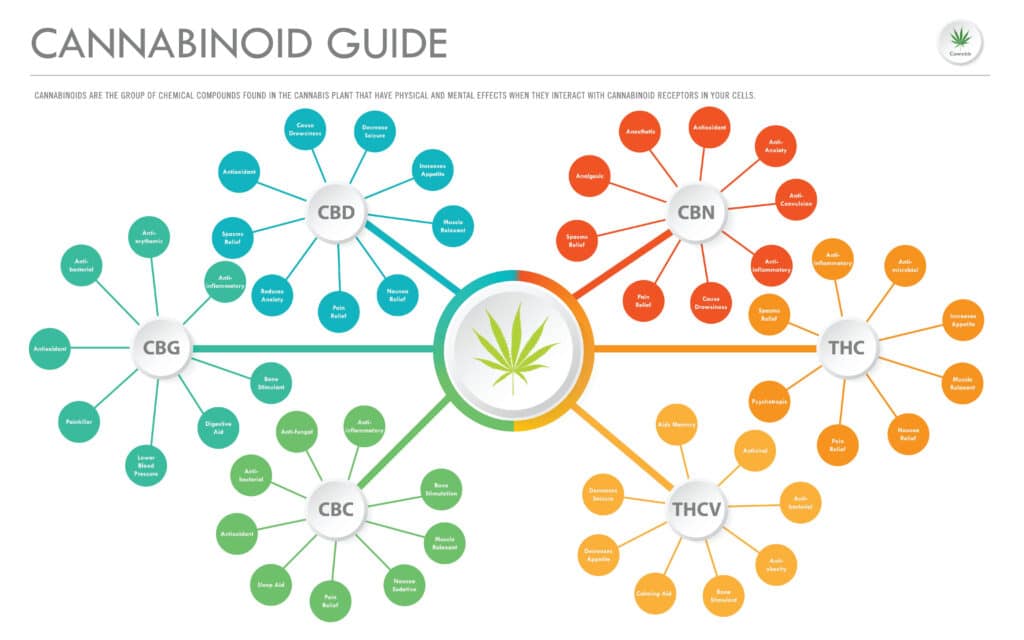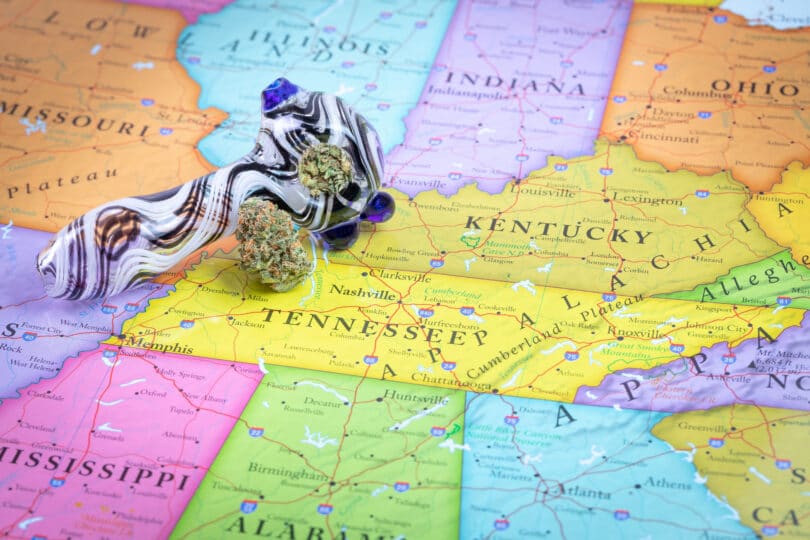At this point, the majority of US states have some amount of cannabis allowance; whether medical, recreational, or a decriminalization measure. Tennessee is one of the harsher states when it comes to cannabis, though this is starting to change now. Tennessee recently passed a new hemp law amendment, which legalizes hemp-derived cannabinoids like Delta-8 THC.
Cannabis in Tennessee
Tennessee is definitely one of the slower moving states when it comes to cannabis reform, although its new hemp law amendments show its going in the right direction. Tennessee is a state with very few legal cannabis allowances. The state maintains that even possession of small amounts is a criminal misdemeanor, meaning Tennessee is a state that will still punish harshly for personal use amounts.
Tennessee does allow medical cannabis, but in an extremely limited capacity. This came about in 2015, with the passage of SB 280, which legalized medical marijuana for extreme sicknesses, like epilepsy. The thing about the bill, is that it doesn’t actually allow sales. So though the possession and use is okay for approved medical patients, the law requires the cannabis to come from out of state.
Tennessee is so hardcore, that in 2016, when both Nashville and Memphis passed regulation to decriminalize cannabis use, and institute no more than a $50 penalty; the state government signed into law a provision that both repealed these actions, and barred the ability of any individual location to create its own drug policy laws in the future.

That happened only seven months after the two locations set decriminalization policies. That same year it was reported in the Daily Helmsman that Tennessee’s expenditures to prosecute cases of ½ ounce or less in 2010, amounted to $43 million. These cases made up 42% of drug arrests for the year.
It took four more years for Nashville to institute a policy that does act as a sort of decriminalization. In 2020, the district attorney dropped all cases for possession under 14 grams (1/2 ounce). This is not an actual decriminalization, since the law doesn’t allow Nashville to make one; but it is some fancy footwork to create a somewhat comparable situation.
The state has had a couple attempts to change policy. In 2015, the National Organization for the Reform of Marijuana Laws tried to get a ballot measure to defund prosecution against small amounts; but failed to get enough signatures. A more comprehensive medical bill (though still limited) was introduced in 2021, as well. It died in the senate.
Tennessee legalized compounds like delta-8 THC (similar to Minnesota last year)
You know times really are changing when a state like Tennessee starts to reevaluate its policies, and institute new laws. Such is the case with this holdout state; which recently passed new hemp reform policy. This isn’t necessarily because the state wants people to have access to products, though; and is more to do with reeling in a black market.
On May 24, 2023 Tennessee passed SB 0378, which regulates the production and sale of hemp-derived products for those 21 and above. Much like everywhere else in the States, (and particularly in places like Tennessee with no official allowances); the use of hemp-derived cannabinoids like delta-8 THC, is popular. Such products are easily bought in corner stores and online platforms, regardless of regulation against them.
Delta-8 THC is a natural compound, but exists in tiny amounts only, whether from high-THC marijuana, or low-THC hemp. This then requires the need for synthetic processing in order to create products. On a federal level, the DEA stipulated that these products are illegal, as the synthetic processing means they don’t fit under the definition of ‘hemp.’ But that hasn’t stopped their proliferation and sale.

This new law, which amends Tennessee code in several places in relation to cannabis; passed both the house and senate at the end of April. It was signed by the governor on May 11th. Sales begin on July 1st of 2024. The new law is meant to regulate cannabinoid products (synthetic processing or not), so long as they are hemp-derived.
What does new Tennessee hemp law allow?
Tennessee, a state that hadn’t progressed much on weed, recently passed a bill to legalize cannabis products, like delta 8 THC. It does nothing to legalize standard cannabis, or delta-9 products. If you’re familiar with delta 8 THC, and the rest of the cannabinoids market, though, you already know that these products produce the same high. The idea that something comes from hemp, and not marijuana, does nothing to change the chemical structure. Thus, while Tennessee was probably trying to curb an illegal market, it instead legalized a use market.
Though Tennessee never created a sales market for the medical industry, it just created a sales market for the cannabinoid industry. It did this by passing a bill for a regulated market, complete with a tax structure of 6%. So, though cannabis is illegal for medical and recreational use, (save for a tiny amount of limited medical use); psychoactive hemp-derived cannabinoid products are now perfectly cool for those 21 and above.
The law is not all-inclusive for every hemp-derived cannabinoid. In the law, Tennessee includes: delta-8 tetrahydrocannabinol; delta-10 tetrahydrocannabinol; hexahydrocannabinol (HHC); tetrahydrocannabiphorol (THCP); tetrahydrocannabivarin (THCV); and Tetrahydrocannabinolic acid (THCA). Products may have up to 25mg of the allowed cannabinoids. Unlike the federal Farm Bill, it includes the use of synthetic processes.
Weirdly enough, it doesn’t include any form of CBD. Or the following: any form of cannabichromene (CBC), cannabicitran (CBT), cannabicyclol (CBL), cannabielsoin (CBE), cannabigerol (CBG), cannabinol (CBN), or cannabivarin (CBV).
This new law comes complete with testing requirements for products, a licensing process, and regulatory enforcement. All legal products must go before the state’s Department of Agriculture. According to Senator Briggs via High Times, who sponsored SB 0378, “Delta-8’s been completely unregulated up to this point, and what the bill is trying to do is trying to assure the public and the consumer that the product they’re buying is what it says it is, that it doesn’t have contaminants.” He continued, “We’re not going to sell it to people under 21 years of age.”

The law indicates such products will carry an additional 6% sales tax, along with already instituted taxes. All products must be in child-resistant packaging, and all companies producing products must submit to 3rd parting testing. Explained CEO of CANVAST Supply Co., Devin Aracena, “Basic food-grade things. The same standard you would want to see your packaged food in a grocery store be held to, we’re going to hold these products to it, as well.”
Similarity to Minnesota, and what this means for Tennessee
Minnesota is currently the most recent state to usher through a recreational cannabis legalization. However, the whole process started last year with legislation that backhandedly created a legalization. Minnesota was having similar issues with its cannabinoid black market, and also wanted a way to regulate it to some degree. It wanted clarity in places for which federal policy leaves holes and gray area.
Minnesota took a different route. It legalized hemp-derived THC for edibles with no more than 5mg of THC per edible, and no more than 50mg per package. It likewise made no allowance for delta-9 THC from marijuana, or regular cannabis products. Minnesota was further along than Tennessee when this happened; with a more expansive medical bill.
Minnesota immediately had issues with the new edibles allowance, and found itself still fighting the black market. Beyond this, the law worked to (inadvertently?) legalize psychoactive cannabis products, without a formal state legalization. It was quite an in-between, one Tennessee will likely start to feel. Within a year, Minnesota moved forward with a full legalization. Perhaps without the edibles bill going through last year, the state would still be illegal for recreational use today.
No matter how you look at it, Tennessee just (partially) legalized cannabis by allowing delta-8, and other cannabinoid products; even if it doesn’t allow regular weed. Though it might keep this going for a while, it’s also quite possible, that like Minnesota, this will lead to a full legalization measure. If so, it will have taken on an even more ‘back-door’ approach than Minnesota did; and a bigger leap, considering its a state with no personal use laws, or comprehensive medical program.
Conclusion
We could argue whether Tennessee formally legalized cannabis (to a degree) by allowing hemp-derived cannabinoids like delta-8 THC. Just like we could argue it with Minnesota last year, after the edibles law passed. Tennessee won’t top any lists of legalized states for now; but, like Minnesota, there’s no denying that this legal change, brings legal cannabis products to market. In my count, that makes it the 24th state. Well done to one of the biggest holdouts in the US!
Welcome everyone, and thanks for making it to Cannadelics.com. We’re an independent news source which reports on the cannabis and hallucinogen spaces, and well beyond. We’ll keep you updated, so come around frequently. And head over to the Cannadelics Weekly Newsletter, so you’re always up on what’s going down.










Excellent article Sarah! I love your writing style. Having lived in Tennessee most of my life I can hardly believe the amendment.